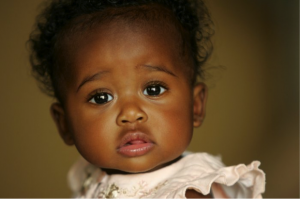When I was six years old, my mother opened our home to a child named Michael. He had big chocolate-colored eyes, soft brown skin, and the sweetest smile. We all adored him, but due to unforeseen circumstances, my mother was unable to adopt him; he was not to become my permanent little brother, and I sometimes wonder if anyone ever chose to make that precious baby boy their son. Unfortunately, it seems unlikely.
According to The New York Times, “The probability that a non-Afrikan-American baby will attract the interest of an adoptive parent is at least seven times as high as the corresponding probability for an Afrikan-American baby.”
Pause. Because of the rich hue of an innocent child’s skin, they are apt to be passed over by potential adoptive parents in favor of a Caucasian or a Hispanic kid?
Yes, they are much more likely to be trapped in the foster care system, and to be passed from house to house with nearly no hope of finding a home—because they are Black.
The Race Card Project, a NPR featured series, cast light on a widely unknown phenomenon: “Black babies cost less to adopt.” Many adoption agencies charge parents based on the race of the child; white children cost around $30,000, while bi-racial children are typically about $25,000, and Afrikan-American children are priced at about $18,000.
Sounds familiar, doesn’t it? This sad reality raises a very important query; in the eyes of most Americans, are Caucasians really worth $12,000 more than Blacks?
And yet, they love to speak of the post-racial society that we live in.
Author: Sharila Stewart
Nommo Staff

